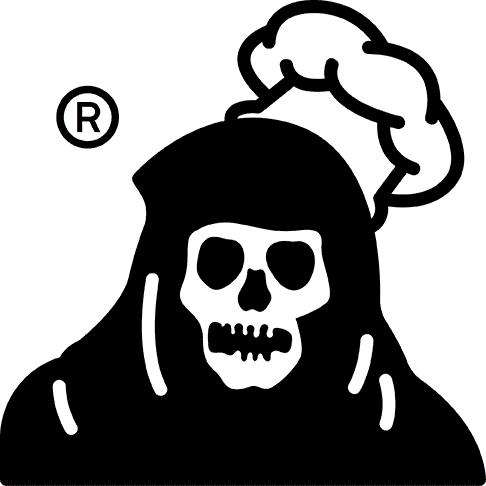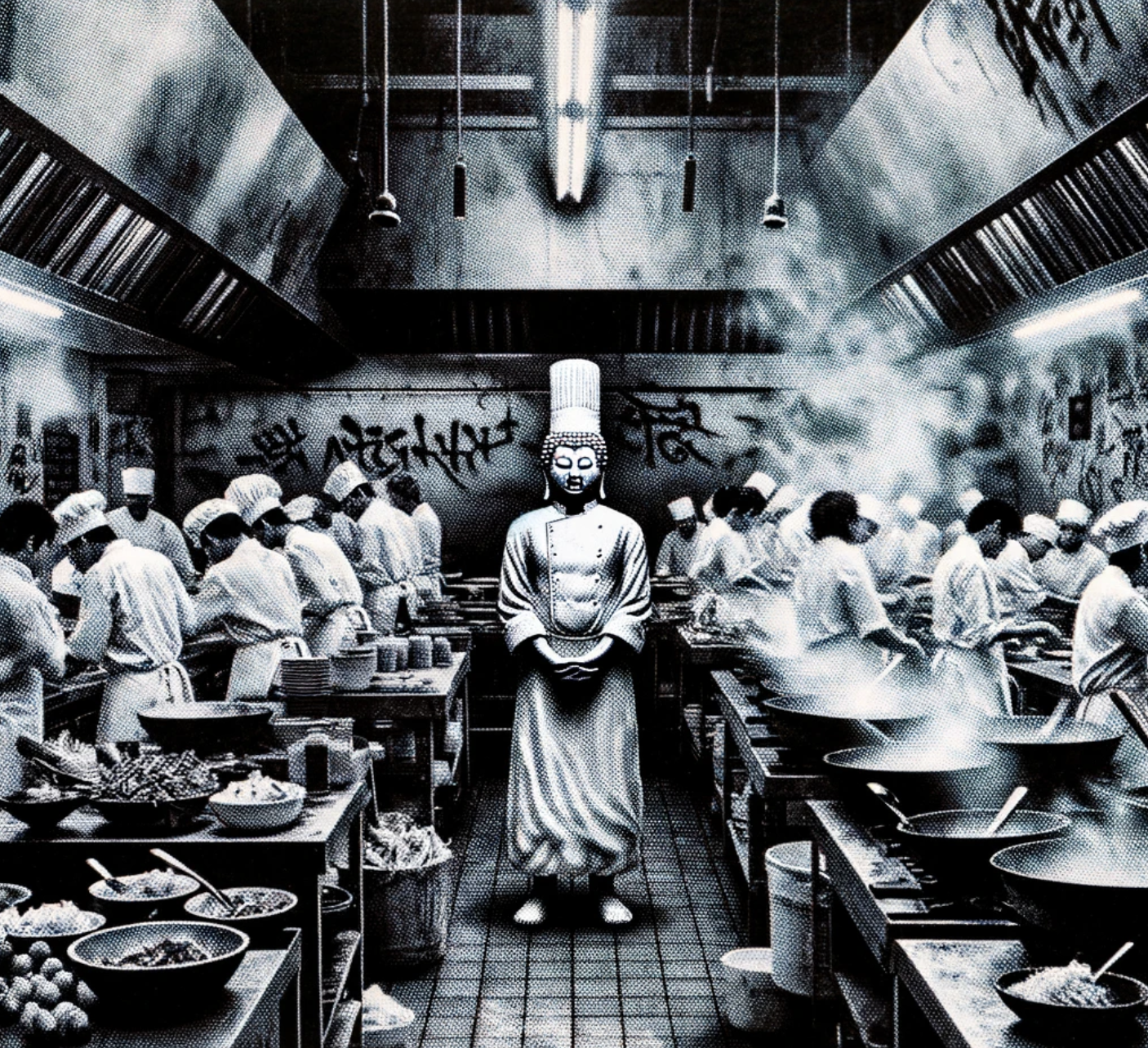The Zen Kitchen: Buddhist Wisdom for Chefs and Cooks
Diving into "Buddhism for Beginners" by Thubten Chodron has been like discovering a secret ingredient that I didn't realize my life was missing. The lessons from Buddhism have opened my eyes to the deeper layers of cooking beyond just recipes and techniques. Here's how I see these Buddhist insights blending with the high-energy world of restaurant kitchens, complete with a straightforward Zen checklist for chefs and cooks.
Mindfulness: The Heart of Cooking
Mindfulness in Buddhism teaches us to be fully present in the moment. Thich Nhat Hanh, a Zen master, once said, "The present moment is filled with joy and happiness. If you are attentive, you will see it." In the kitchen, this translates to being fully engaged with the cooking process, from chopping vegetables to plating dishes. Research shows that mindfulness can reduce stress and increase satisfaction in work environments, including fast-paced kitchens (Christopher K. Hsee et al., "Mindfulness and Satisfaction in Physical Activity: A Cross-Sectional Study in the Dutch Population," Journal of Health Psychology, 2010).
Embracing Change: The Nature of Kitchen Work
Change is a constant in both Buddhism and kitchens. Pema Chödrön, an American Tibetan Buddhist, talks about embracing impermanence as a way to live in harmony with reality. For chefs, this means adapting to seasonal ingredients, changing menus, and the unpredictability of each service. Studies have found that flexibility and adaptability in the workplace, such as a kitchen, can lead to better problem-solving skills and job satisfaction (Jeffrey Pfeffer, "Building Sustainable Organizations: The Human Factor," Academy of Management Perspectives, 2010).
Compassion: Cooking with Love
The Dalai Lama emphasizes compassion, saying, "If you want others to be happy, practice compassion. If you want to be happy, practice compassion." In culinary terms, cooking with compassion means putting love and care into every dish, aiming to bring joy to those who eat it. Research in the field of gastronomy suggests that the emotional state of the chef can affect the taste and experience of the meal (Charles Spence, "Gastrophysics: The New Science of Eating," 2017), underlining the importance of cooking with a positive, compassionate mindset.
Learning from Mistakes: The Path to Mastery
Shunryu Suzuki, a Zen monk, noted, "In the beginner's mind, there are many possibilities, but in the expert's, there are few." This speaks to the value of learning from every experience, including mistakes. In the kitchen, every burnt dish or over-seasoned sauce is an opportunity to learn and grow. A study on learning from failure in organizations (Amy C. Edmondson, "Learning from Failure in Organizations," Annual Review of Organizational Psychology and Organizational Behavior, 2019) highlights how embracing mistakes can lead to innovation and improvement.
The Zen Kitchen Checklist
To bring more Zen into your kitchen work, here's a simplified checklist based on these principles:
Practice Mindfulness:
Focus fully on each task, whether it's peeling potatoes or setting up plates.
Take a moment to breathe deeply when things get hectic.
Adapt to Change:
Be open to menu changes and unexpected situations.
Use seasonal ingredients creatively.
Cook with Compassion:
Put care into every dish as if you're cooking for someone special.
Encourage a positive atmosphere in the kitchen.
Learn from Every Experience:
See mistakes as opportunities to improve. (I use this constantly.)
Stay curious and open to new techniques and ideas.
Implementing these practices can not only improve the quality of your cooking but also enhance the overall kitchen environment, making it a more positive and productive place and can even improve your life overall but what do I know Im just some guy who rambles on and on. Whether you're a professional chef or a home cook, these Zen principles offer a pathway to a more mindful, satisfying culinary experience.
Cheers dudes and dudettes, I mean, peace.

